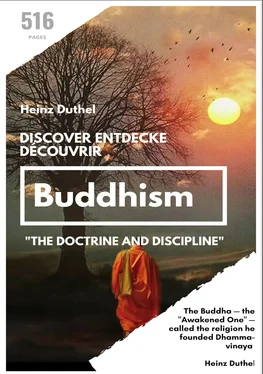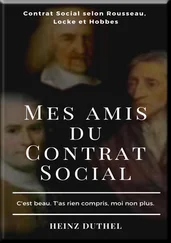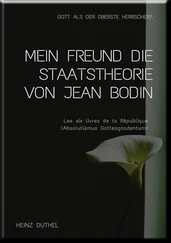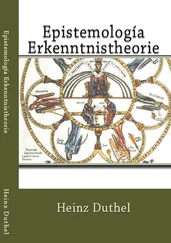"This was the third knowledge I attained in the third watch of the night. Ignorance was destroyed; knowledge arose; darkness was destroyed; light arose — as happens in one who is heedful, ardent, & resolute. But the pleasant feeling that arose in this way did not invade my mind or remain."
— MN 36
Supreme Awakening!
Through the round of many births I roamed without reward, without rest, seeking the house-builder. Painful is birth again & again. House-builder, you're seen! You will not build a house again. All your rafters broken, the ridge pole destroyed, gone to the Unformed, the mind has come to the end of craving.
— Dhp 153-4
He becomes the Tathagata
"The world has been fully awakened to by the Tathagata. From the world, the Tathagata is disjoined. The origination of the world has been fully awakened to by the Tathagata. The origination of the world has, by the Tathagata, been abandoned. The cessation of the world has been fully awakened to by the Tathagata. The cessation of the world has, by the Tathagata, been realized. The path leading to the cessation of the world has been fully awakened to by the Tathagata. The path leading to the cessation of the world has, by the Tathagata, been developed.
"Whatever in this world — with its devas, Maras, & Brahmas, its generations complete with contemplatives & priests, princes & men — is seen, heard, sensed, cognized, attained, sought after, pondered by the intellect, that has been fully awakened to by the Tathagata. Thus he is called the Tathagata.
"From the night the Tathagata fully awakens to the unsurpassed Right Self-awakening to the night he is totally unbound in the Unbinding property with no fuel remaining, whatever the Tathagata has said, spoken, explained is just so (tatha) and not otherwise. Thus he is called the Tathagata.
"The Tathagata is one who does in line with (tathaa) what he teaches, one who teaches in line with what he does. Thus he is called the Tathagata.
"In this world with its devas, Maras, & Brahmas, its generations complete with contemplatives & priests, princes & men, the Tathagata is the unconquered conqueror, all-seeing, the wielder of power. Thus he is called the Tathagata."
— Iti 112
After the Awakening
The Buddha investigates the laws of cause-and-effect
I have heard that on one occasion, when the Blessed One was newly Awakened — staying at Uruvela by the banks of the Nerañjara River in the shade of the Bodhi tree, the tree of Awakening — he sat in the shade of the Bodhi tree for seven days in one session, sensitive to the bliss of release. At the end of seven days, after emerging from that concentration, in the third watch of the night, he gave close attention to dependent co-arising in forward and reverse order, thus:
When this is, that is. From the arising of this comes the arising of that. When this isn't, that isn't. From the cessation of this comes the cessation of that.
In other words:
From ignorance as a requisite condition come fabrications. From fabrications as a requisite condition comes consciousness. From consciousness as a requisite condition comes name-and-form. From name-and-form as a requisite condition come the six sense media. From the six sense media as a requisite condition comes contact. From contact as a requisite condition comes feeling. From feeling as a requisite condition comes craving. From craving as a requisite condition comes clinging/sustenance. From clinging/sustenance as a requisite condition comes becoming. From becoming as a requisite condition comes birth. From birth as a requisite condition, then old age and death, sorrow, lamentation, pain, distress, and despair come into play. Such is the origination of this entire mass of stress and suffering.
Now from the remainderless fading and cessation of that very ignorance comes the cessation of fabrications. From the cessation of fabrications comes the cessation of consciousness. From the cessation of consciousness comes the cessation of name-and-form. From the cessation of name-and-form comes the cessation of the six sense media. From the cessation of the six sense media comes the cessation of contact. From the cessation of contact comes the cessation of feeling. From the cessation of feeling comes the cessation of craving. From the cessation of craving comes the cessation of clinging/sustenance. From the cessation of clinging/sustenance comes the cessation of becoming. From the cessation of becoming comes the cessation of birth. From the cessation of birth, then old age and death, sorrow, lamentation, pain, distress, and despair all cease. Such is the cessation of this entire mass of stress and suffering.
Then, on realizing the significance of that, the Blessed One on that occasion exclaimed:
As phenomena grow clear to the brahman — ardent, absorbed — he stands, routing the troops of Mara, like the sun that illumines the sky.
— Ud 1.3
He wonders: Whom should I revere as my teacher?
I have heard that on one occasion, when the Blessed One was newly Self-awakened, he was staying at Uruvela on the bank of the Nerañjara River, at the foot of the Goatherd's Banyan Tree. Then, while he was alone and in seclusion, this line of thinking arose in his awareness: "One suffers if dwelling without reverence or deference. Now on what priest or contemplative can I dwell in dependence, honoring and respecting him?"
Then the thought occurred to him: "It would be for the sake of perfecting an unperfected aggregate of virtue that I would dwell in dependence on another priest or contemplative, honoring and respecting him. However, in this world with its devas, Maras, & Brahmas, in this generation with its priests and contemplatives, its royalty and common-folk, I do not see another priest or contemplative more consummate in virtue than I, on whom I could dwell in dependence, honoring and respecting him.
"It would be for the sake of perfecting an unperfected aggregate of concentration...
"It would be for the sake of perfecting an unperfected aggregate of discernment...
"It would be for the sake of perfecting an unperfected aggregate of release...
"It would be for the sake of perfecting an unperfected aggregate of knowledge and vision of release that I would dwell in dependence on another priest or contemplative, honoring and respecting him. However, in this world with its devas, Maras, & Brahmas, in this generation with its priests and contemplatives, its royalty and common-folk, I do not see another priest or contemplative more consummate in knowledge and vision of release than I, on whom I could dwell in dependence, honoring and respecting him.
"What if I were to dwell in dependence on this very Dhamma to which I have fully awakened, honoring and respecting it?"
Then, having known with his own awareness the line of thinking in the Blessed One's awareness — just as a strong man might extend his flexed arm or flex his extended arm — Brahma Sahampati disappeared from the Brahma-world and reappeared in front of the Blessed One. Arranging his upper robe over one shoulder, he saluted the Blessed One with his hands before his heart and said to him: "So it is, Blessed One! So it is, One-Well-Gone! Those who were arahants, Rightly Self-awakened Ones in the past — they, too, dwelled in dependence on the very Dhamma itself, honoring and respecting it. Those who will be arahants, Rightly Self-awakened Ones in the future — they, too, will dwell in dependence on the very Dhamma itself, honoring and respecting it. And let the Blessed One, who is at present the arahant, the Rightly Self-awakened One, dwell in dependence on the very Dhamma itself, honoring and respecting it."
— SN 6.2
He wonders: Should I teach this Dhamma to others?
I have heard that on one occasion, when the Blessed One was newly Self-awakened, he was staying at Uruvela on the bank of the Nerañjara River, at the foot of the Goatherd's Banyan Tree. Then, while he was alone and in seclusion, this line of thinking arose in his awareness: "This Dhamma that I have attained is deep, hard to see, hard to realize, peaceful, refined, beyond the scope of conjecture, subtle, to-be-experienced by the wise. But this generation delights in attachment, is excited by attachment, enjoys attachment. For a generation delighting in attachment, excited by attachment, enjoying attachment, this/that conditionality and dependent co-arising are hard to see. This state, too, is hard to see: the resolution of all fabrications, the relinquishment of all acquisitions, the ending of craving; dispassion; cessation; Unbinding. And if I were to teach the Dhamma and if others would not understand me, that would be tiresome for me, troublesome for me."
Читать дальше












